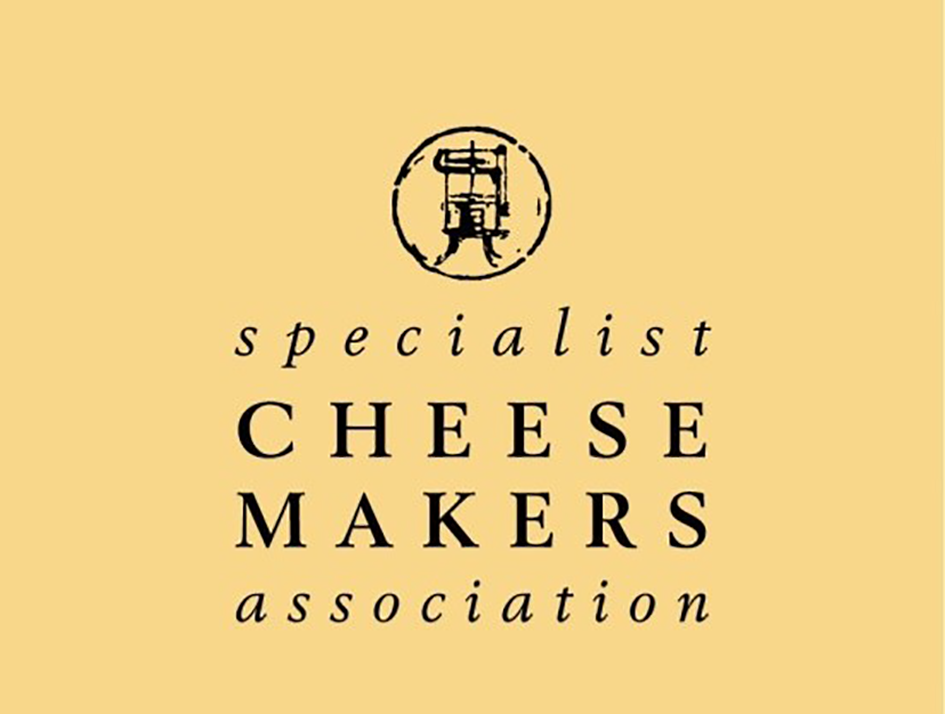
FAQ
Christmas Frequently asked questions
Pre-ordering lets you secure your cheese selection now and choose a delivery date that works for you later. This way, you can plan your Christmas cheese needs in advance and enjoy peace of mind as the festive season approaches.
Orders from the 14th December onwards will have Christmas dated cheese.
We will be busy shipping out your Christmas deliveries up until 21st December. Due to the demand of certain dates, there is a small surcharge applied at checkout. This includes orders over the £40 delivery threshold. However, we still have plenty of free dates available in the run up to the festive season. Please see the date selector at basket.
Orders from the 14th December onwards will have Christmas dated cheese.
You can place your Christmas order now up until the 21st December for delivery before Christmas.
Orders from the 14th December onwards will have Christmas dated cheese.
Our cheeses have a varied shelf life, but our cut cheeses have approximately 12 days shelf life from the date the order is despatched. And our individual (not cut cheeses) will have a best before sticker.
Orders from the 14th December onwards will have Christmas dated cheese.
The majority of our cheeses are wrapped in waxed paper, which allows the best balance between maintaining humidity around the cheese and allowing it to breathe at the same time. Cut pieces of cheese should be kept in the fridge to slow down mould growth. We recommend storing the waxed paper in a box inside the fridge, this prevents cheese from absorbing additional aromas in the fridge.
If you have purchased a whole cheese, like our Stilton, they may be too large to fit in your fridge whole. During the winter months, you can improvise by keeping your cheese in a cellar or cool room. Please be aware that when you store cheese out of the fridge, your cheese will develop more quickly. This can result in more rounded flavours.
If your gift contains cheese or meat, please ensure this is refrigerated upon receipt of the parcel to ensure the quality of the cheese/meat is maintained and food safe.
Ordering & Delivery
Please call our sales team as soon as possible on +44 (0) 1451 823460. We are happy to help you amend your order up to 2 working days prior to dispatch. We may need additional notice during peak periods. We are unable to amend orders that are already packed &/or in transit.
If you call us on +44 (0) 1451 823460, depending on the additional request and order date, we may be able to add to an existing order or advise to place another.
Orders must be placed before 11am for next day delivery. Orders placed for future dates can be placed at an time. Read more about our delivery here.
Due to the nature of working with artisan products, some products may be seasonal or we may reject an incoming delivery. If you see a product you would like that is out of stock, sign up to the back in stock emails to receive an email notification of when this item is available again.
We’re sorry that there is something missing from you order. Please give us a call on 01451 823460, and we will will investigate for you. Alternatively, you can email us on sales@paxtonandwhitfield.co.uk and we will get back to you.
Our curated hampers have carefully selected products and unfortunately, you’re unable to swap out for different products.
Yes. We have a calendar feature on the shopping basket page which allows you to select any available date in the future.
As we use third-party courier, DPD, we assure you that we will do our best to ensure that it arrives on your chosen delivery date. You can read more about our delivery here. However, we cannot guarantee the arrival day of your order due to unforeseen circumstances with the courier, please get int touch if you have any problems.
We deliver to Northern Ireland, The Highlands & Isle of Man on a 2-day service, but we are unable to offer delivery to other international locations. Unfortunately, we cannot deliver to Jersey or Guernsey due to no guarantee that the order will arrive within the food safety window.
Simply let us know at checkout any additional delivery instructions you may have, and we will pass this onto our third-party courier, DPD.
DPD will send you a notification via email & text once they have dispatched your order. This notification will include your tracking which you can update any
delivery information on there too. If you have any issues with tracking your order, do not hesitate to contact us.
Once you’ve placed your order online & our courier DPD have collected your parcel from our warehouse, you will receive a live tracking number via email & text.
On the morning of your chosen delivery date, DPD will update the tracking number with a timed delivery slot. If you have the DPD app you will also receive notifications via the app.
All our cheese parcels are cooled with reusable ice packs and insulated with recyclable Woolcool packaging. We always use an overnight delivery service for UK mainland orders to ensure that your cheese arrives with you in fine condition. Guidance is provided with the packaging on the best way to reuse and recycle it. We regularly review our packaging to find the most eco-friendly material which can keep your cheese order in the best possible condition.
It may sound silly, but the most important thing to do is unpack your order and pop your cheese in the fridge until a few hours before you are ready to serve. If you spot any issues with your order, please contact us as soon as possible so we can rectify them.
We’re sorry to hear that your order has gone missing, please contact us as soon as possible and we will investigate and rectify the issue.
If your parcel has gone missing, please check the DPD tracking information to ensure that the parcel hasn’t been left in an alternative location. If you are unable to located your parcel, please contact us as soon as possible and we will investigate and rectify the issue.
Please contact us as soon as possible and we will investigate and try to rectify the issue with a collection and redelivery. Please be aware that our cheese is fresh, and therefore cannot withstand more than 48 hours in transport.
Payment
Payment is taken at the time of placing your order through our secure payment gateway.
We accept all of the below payment methods:
- Mastercard
- Visa
- American Express
- Discover
- Diners Club
- Apple Pay
- Google Pay
- Maestro
- Shop Pay
- Union Pay
- Paypal
Your card information is stored securely as Shopify will encrypt this information to protect it. We are unable to access your full credit card information once it has been entered. If you checkout via Apple Pay, Google Pay, PayPal or ShopPay your card details will be retained by those services.
Apply your gift voucher at checkout by entering the code into the discount box. All gift vouchers are valid for 12 months from their purchase date.
Cheese Storage & Serving
Our cheeses have a varied shelf life, but our cut cheeses have approximately 12 days shelf life from the date the order is despatched. And our individual (not cut cheeses) will have a best before sticker.
The majority of our cheeses are wrapped in waxed paper, which allows the best balance between maintaining humidity around the cheese and allowing it to breathe at the same time. Cut pieces of cheese should be kept in the fridge to slow down mould growth. We recommend storing the waxed paper in a box inside the fridge, this prevents cheese from absorbing additional aromas in the fridge.
If you have purchased a whole cheese, like our Stilton, they may be too large to fit in your fridge whole. During the winter months, you can improvise by keeping your cheese in a cellar or cool room. Please be aware that when you store cheese out of the fridge, your cheese will develop more quickly. This can result in more rounded flavours.
To enjoy your cheese at its best, we suggest allowing the cheese to come to room temperature between 18 & 23 degrees centigrade for an hour before serving.
If the rind is edible then yes! To find out more about the different types of rinds read more here.
Cheese Information
Yes, you can! Vegetarian rennet is used as an alternative to animal rennet in some of our cheeses.
You can filter by vegetarian rennet in our collections.
Alternatively you can double check under the nutrition drop down on our product pages.
We also have a vegetarian cheese collection.
Including dairy foods such as milk and cheese are important for expecting mums, some cheese do need to be avoided during pregnancy.
Avoiding cheeses like mould-rippened soft cheeses, such as, brie, camembert and others with a similar rind. You also advised to avoid soft blue-veined cheeses, such as, roquefort and gorgonzola. These are made with moulds that can contain listeria, a type of bacteria that can potentially harm an unborn baby.
It’s perfectly ok to consume hard cheeses like cheddar, even if they are unpasteurised and cheeses such as mozzarella and ricotta.
Pasteurised milk has been heated vs unpasteurized contains all of it’s natural bacteriological and enzymatic characteristics, therefore keeping the natural flora in the milk. Pasturised milk has been heated to a particular temperature, for a particular length of time to kill of certain bacteria, including any natural benefits that may or may not be present. Our cheesemakers often use milk from their own farms, thereby ensuring they have total control over the quality of their unpasturised milk, therefore allowing cheesemakers to have full decision making over their breeding programmes and pastures.
About Us
Paxton & Whitfield was first recorded as a partnership in 1797, but its origins began in 1742 when Stephen Cullum set up a cheese stall in Aldwych market. As London
became increasingly affluent Sam Cullum (Stephen's son) moved his cheese business closer to his wealthy customer base, near to Jermyn Street where there is still a shop today. He also took on two new partners - Harry Paxton and Charles Whitfield. Ironically it is their names, not his, which grace the shop fronts now. If you would like to learn more about our heritage, click here.
We believe in the importance of environmental protection and improvement for the long-term sustainability of us all, and because it makes commercial sense to do so. We recognise that our business activities have direct and indirect environmental impacts, and we are committed to managing these responsibly. You can read more about our environmental policy here.



